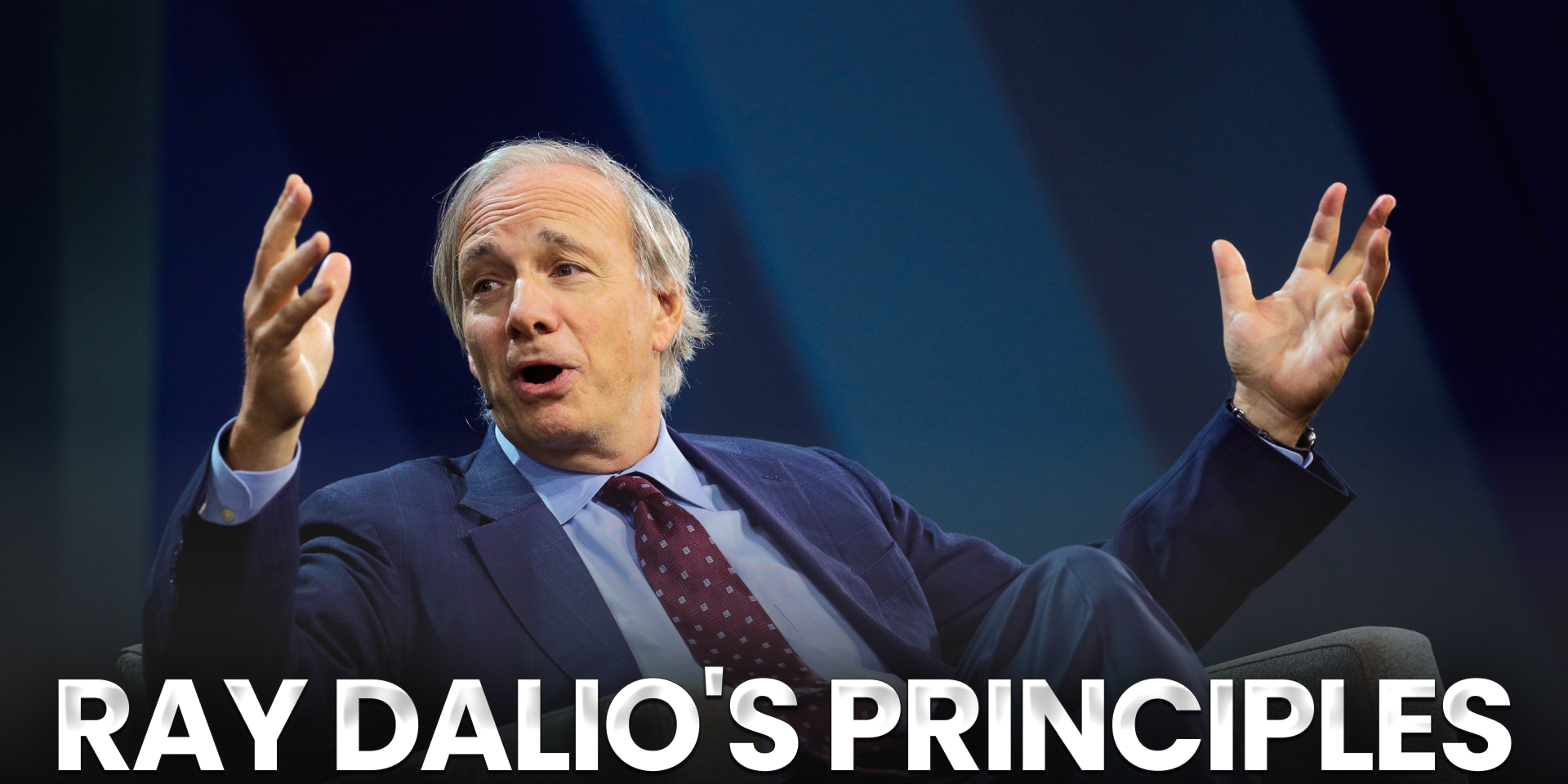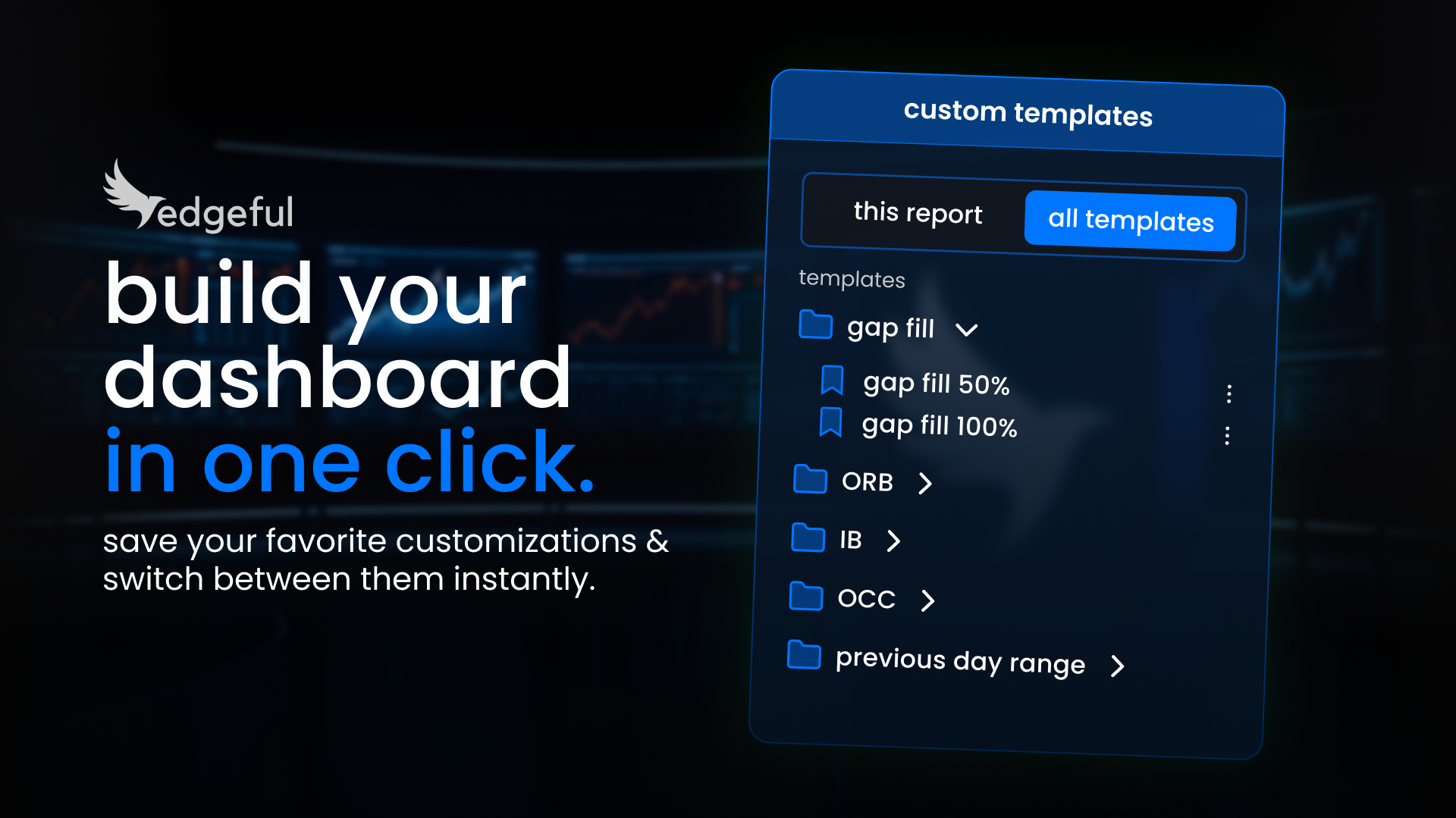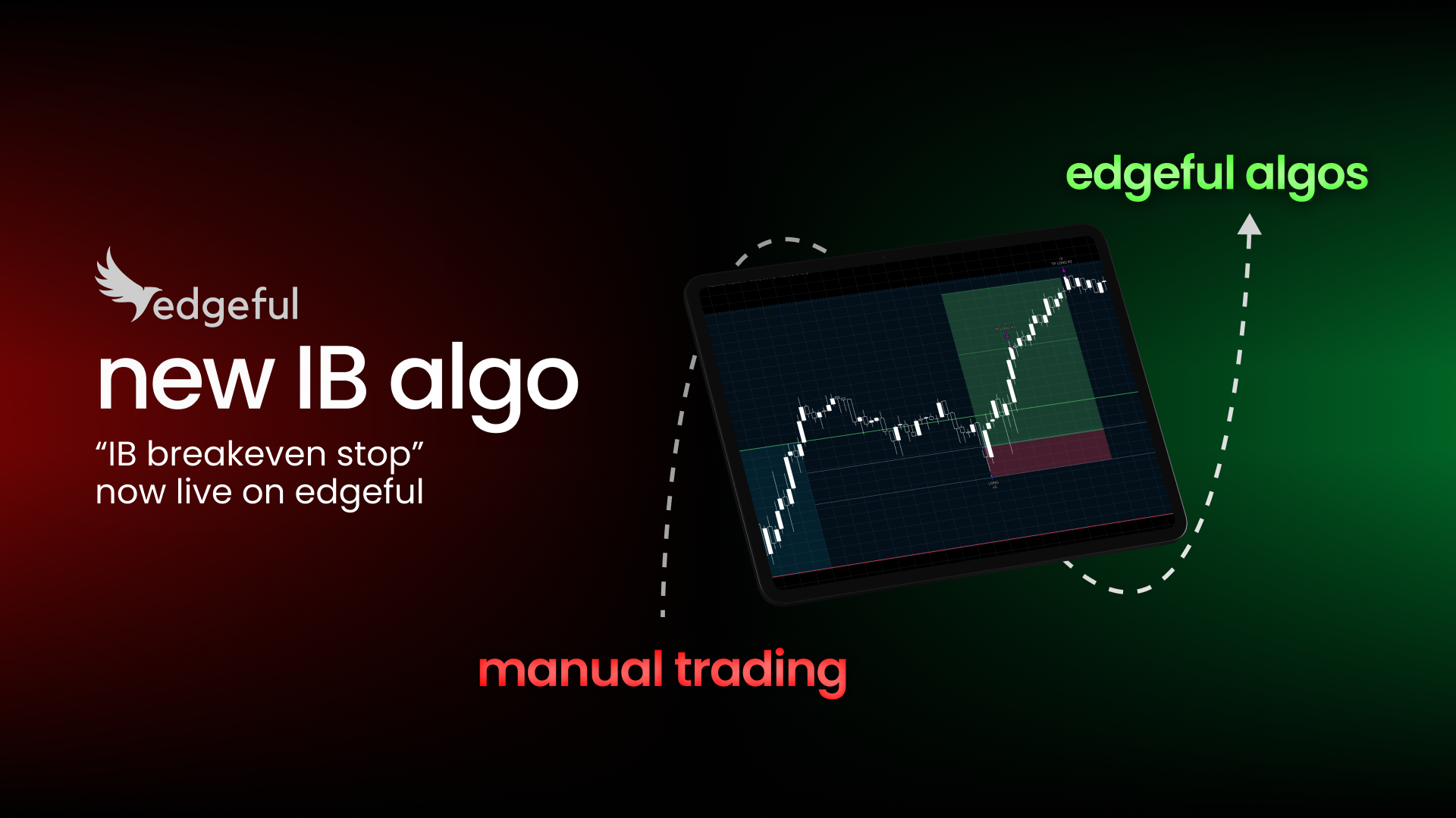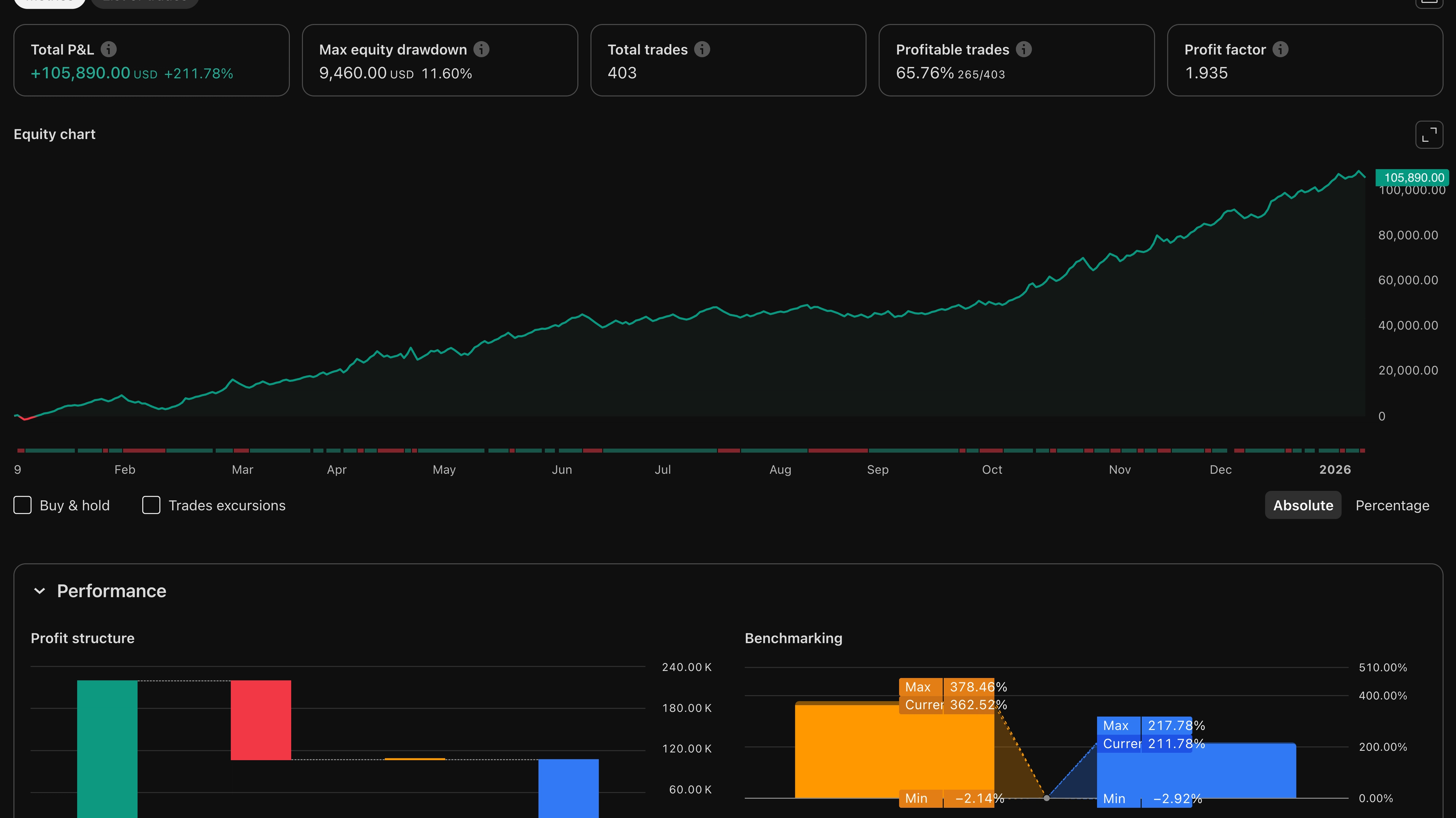Ray Dalio: systematic trading principles that generated $55B profits

here's a question for you: what if I told you there's a billionaire who built his entire fortune on one simple idea - that humans are terrible at making decisions under pressure?
Ray Dalio didn't just believe this. he proved it.
while most of wall street was chasing the next hot stock or trying to time the market, Ray Dalio was quietly building something different. a systematic approach that would eventually make Bridgewater Associates one of the most successful hedge funds in the world.
the crazy part? Ray Dalio started with the same problem every trader faces - he couldn't control his emotions.
table of contents
- the emotional trading disaster that nearly ended Ray Dalio's career
- how Ray Dalio turned his biggest failure into a systematic breakthrough
- the "principles" approach that generated $55 billion in profits
- why Bridgewater's success isn't about being smarter
- what Ray Dalio's methods mean for futures traders who want consistent results
- frequently asked questions about Ray Dalio and systematic trading
- key takeaways from Ray Dalio's trading philosophy
the failure that changed Ray Dalio forever
let's start with the disaster.
- Ray Dalio is running Bridgewater Associates, which at this point is basically him and a few employees working out of a small office.
he's convinced - absolutely certain - that the U.S. economy is about to collapse. the debt levels are insane. a depression is coming. Ray Dalio is so sure, he goes on TV and tells everyone to prepare for the crash.
he puts his money where his mouth is. goes all-in on the bet.
and he's completely wrong.
the market doesn't crash. it rallies. hard.
Bridgewater nearly goes under. Ray Dalio has to fire almost everyone. he's borrowing money from his dad just to keep the business alive.
but here's what's interesting - this wasn't just a bad trade. this was an emotional decision that looked like analysis.
Ray Dalio later admitted he was so confident in his prediction that he stopped questioning it. he let his ego override the data.
he made the same mistake every trader makes: he fell in love with being right.
sound familiar? this is exactly what I see with thousands of traders every single day. they have strategies that could work, but they can't stick to them because emotions get in the way. that's why understanding why futures traders fail is so critical.
the systematic solution Ray Dalio developed
most people would've given up. maybe gone back to working for someone else.
Ray Dalio did something different.
he started writing everything down. every decision he made. why he made it. what happened. what he learned.
the wins for sure - but even more importantly - the losses.
Ray Dalio called these observations "principles" - basically rules for making decisions without letting emotions take over.
the idea was simple: if he could systematize his decision-making process, he could avoid making the same emotional mistakes over and over.
this wasn't about being smarter than everyone else. it was about being more consistent.
Ray Dalio eventually documented over 375 of these principles. everything from how to evaluate economic data to how to hire people to how to handle disagreements.
but the core insight was this: humans are wired to make terrible decisions under pressure. the only way to overcome this is to create systems that work regardless of how you're feeling in the moment.
and years later, Ray Dalio's Bridgewater became one of top 10 best performing funds in the world.
how Ray Dalio's systematic approach actually worked
Bridgewater's approach was simple in concept but revolutionary in execution.
instead of making decisions based on hunches, Ray Dalio and his team systematized everything. they studied economic cycles. they documented patterns. they turned insights into algorithms.
Ray Dalio famously said: "pain + reflection = progress."
every mistake became data. every success became a principle. every decision was guided by systematic analysis instead of emotions.
their investment process? about 99% systematic. human emotions were almost completely removed from the equation.
while other hedge funds were relying on star traders and gut feelings, Ray Dalio was building systems that worked consistently regardless of market conditions.
they were looking for statistical patterns in historical data that could give them an edge - the same approach we use with algo trading strategies at edgeful.
Ray Dalio's key trading principles
here's what made Ray Dalio's approach revolutionary:
- systematic decision-making: Ray Dalio created documented principles that removed emotion from trading decisions. no more gut feelings or hunches - just proven statistical edges.
- learning from failure: when Ray Dalio made that catastrophic bet in 1982, he didn't just move on. he analyzed it, documented what went wrong, and built systems to prevent similar mistakes.
- data-driven analysis: instead of predictions based on feelings, Ray Dalio's Bridgewater used historical data to identify patterns that actually repeated in markets.
- removing human bias: by making their process 99% systematic, Ray Dalio essentially removed the human element that destroys most traders.
the connection between Ray Dalio and edgeful
Ray Dalio has always been a huge inspiration for me, and what I've learned studying him, I've applied to edgeful.
learning that losses aren't setbacks - they're a gateway to progress. if you can track it, you can improve it, and some sort of "systematic execution" will always outperform emotional decisions.
overall - if you can remove humans from the trading equation, there's a strong chance you'll be successful.
our algos - gap fill, opening range breakout, initial balance, and now engulfing candles - follow the same approach Ray Dalio pioneered.
we've analyzed years of market data to identify setups with proven statistical advantages, then built systems to execute them consistently.
just like Ray Dalio and Bridgewater removed emotions from decision-making, our algos handle the part that kills most traders: the execution.
when one of our algos signals a trade, it will execute. it enters, exits, and takes profit for you once you've set up the broker integration.
no second-guessing. no emotional override. no "maybe I should wait for a better setup."
the system makes the decision. you follow it. just like Ray Dalio taught.
what Ray Dalio's methods mean for futures traders
the truth is, most traders will read this and keep doing exactly what they were doing before.
they'll keep second-guessing their entries. keep moving their stops when trades go against them. keep abandoning strategies after a few losses.
but some traders will recognize what Ray Dalio figured out: the problem isn't the market. it's not bad luck. it's not timing.
the problem is letting emotions drive decisions that should be systematic.
you already know this, don't you? you've felt it every time you've overridden your own rules. every time you've held a losing trade too long because you "just knew" it would turn around.
Ray Dalio's breakthrough wasn't discovering some secret about markets. it was realizing that success comes from building systems that work even when - especially when - you don't feel like following them.
applying Ray Dalio's principles to futures trading
here's how you can apply what Ray Dalio taught to your own futures trading:
- document your decisions: like Ray Dalio did after his 1982 failure, start writing down every trade decision. why you entered, what happened, what you learned.
- systematize what works: once you identify patterns in your successful trades, turn them into rules. Ray Dalio documented 375 principles - you don't need that many, but you do need consistency.
- remove emotional override: this is where most traders fail. they create rules, then break them when emotions take over. Ray Dalio's solution was making decisions 99% systematic.
- use data, not gut feelings: every edgeful report shows you historical probabilities. that's the kind of data-driven approach Ray Dalio built his empire on.
if you're looking to build a more systematic approach like Ray Dalio's, check out our guide on the opening range breakout trading strategy to see how we apply these principles to specific setups.
putting Ray Dalio's philosophy together
you don't need 300 employees or billions in computing power to follow Ray Dalio's approach.
you don't need to be a mathematician or understand complex economic models like Ray Dalio.
you just need to make the same choice Ray Dalio made: systematic execution based on statistical edges, with human emotion removed from the process.
our algos give you access to that approach. the same principles that Ray Dalio used to build one of the world's most successful hedge funds, adapted for futures traders who want consistent results without the emotional roller coaster.
frequently asked questions about Ray Dalio and systematic trading
who is Ray Dalio and why is he important to traders?
Ray Dalio is the founder of Bridgewater Associates, one of the world's most successful hedge funds. Ray Dalio is important to traders because he pioneered the systematic, principles-based approach to investing that removed emotional decision-making from trading. after nearly losing everything in 1982, Ray Dalio developed a framework of 375+ documented principles that turned failures into data and emotions into systematic processes.
what are Ray Dalio's main trading principles?
Ray Dalio's main trading principles focus on systematic execution, data-driven analysis, and learning from failure. his famous formula "pain + reflection = progress" captures how Ray Dalio turned losses into learning opportunities. Ray Dalio's approach emphasizes removing human emotion from trading decisions - Bridgewater's investment process is about 99% systematic, meaning algorithms and data drive decisions rather than gut feelings or hunches.
how can I apply Ray Dalio's methods to futures trading?
you can apply Ray Dalio's methods to futures trading by documenting every trade decision, systematizing what works into repeatable rules, and using historical data to guide entries and exits. Ray Dalio's approach isn't about being smarter - it's about being more consistent. at edgeful, we've built this exact philosophy into our algos, which analyze years of historical data and execute trades systematically without emotional interference, following the same principles Ray Dalio used at Bridgewater.
what makes Ray Dalio's approach different from traditional trading?
Ray Dalio's approach is different because it's 99% systematic rather than discretionary. while traditional traders rely on gut feelings and predictions, Ray Dalio built a system that removes human emotion from the equation. Ray Dalio documented every decision, turned insights into algorithms, and created a framework where data and statistics drive trades - not fear, greed, or ego. this systematic approach is what allowed Ray Dalio to build Bridgewater into one of the most successful hedge funds despite catastrophic early failures.
did Ray Dalio really lose everything before becoming successful?
yes, Ray Dalio nearly lost everything in 1982 when he made a massive emotional bet that the U.S. economy would collapse. Ray Dalio was so confident, he went on TV to warn everyone - then was completely wrong. the market rallied instead of crashing, and Ray Dalio had to fire almost all his employees and borrow money from his father just to keep Bridgewater alive. this failure became the catalyst for Ray Dalio's systematic approach - he realized that emotional confidence without data backing was destroying his trading, which led him to develop the principles-based framework that eventually built a $150 billion empire.
key takeaways from Ray Dalio's trading philosophy
here's what every futures trader should learn from Ray Dalio:
- systematic beats emotional: Ray Dalio proved that documented principles and systematic execution consistently outperform gut feelings and predictions. his 99% systematic approach removed the emotional decision-making that destroys most traders.
- losses are data: when Ray Dalio nearly lost everything in 1982, he didn't quit - he analyzed what went wrong and built systems to prevent similar mistakes. "pain + reflection = progress" became his formula for turning failures into improvements.
- document everything: Ray Dalio's 375+ principles came from years of writing down every decision, outcome, and lesson. you don't need hundreds of principles, but you do need to track and systematize what actually works in your trading.
- remove human emotion: the biggest lesson from Ray Dalio is that human emotions - even from brilliant people - make terrible trading decisions under pressure. systematic execution removes that fatal flaw.
- use historical data: instead of predicting the future, Ray Dalio's Bridgewater looks for statistical patterns in historical data. that's exactly how our algos work at edgeful - years of backtested data showing what actually happens, not what we hope will happen.
want to trade with the same systematic approach Ray Dalio used to build Bridgewater? check out our algos and see how we've applied Ray Dalio's principles to futures trading.


